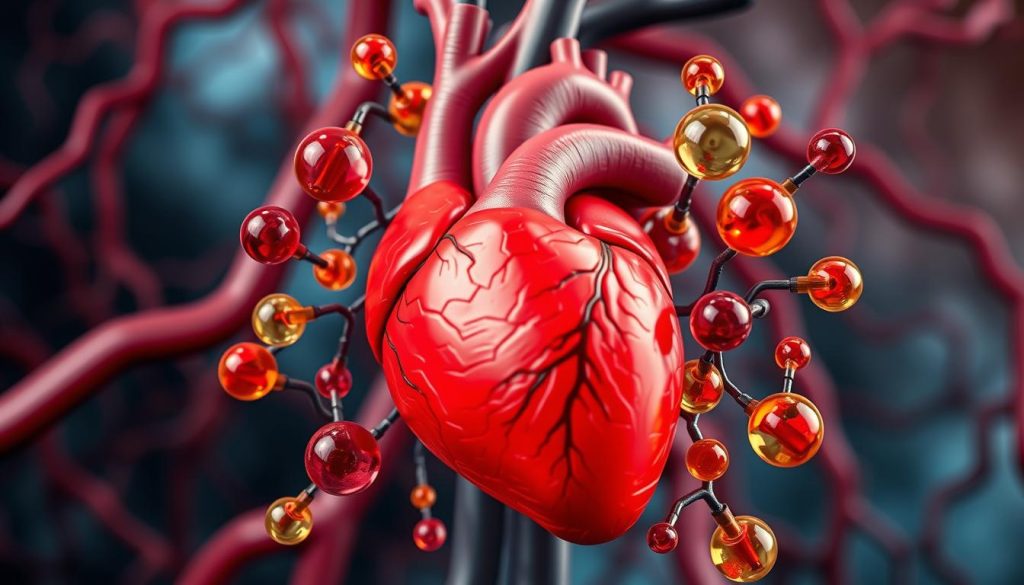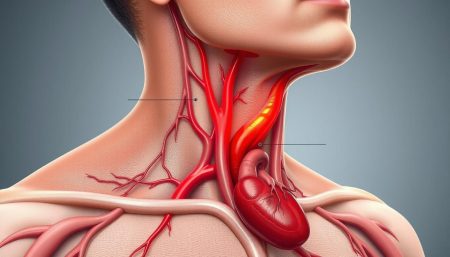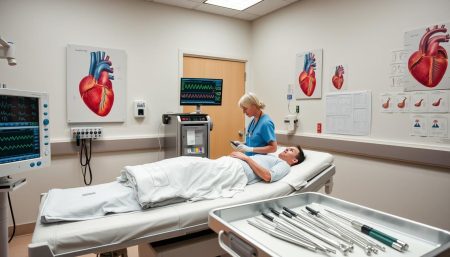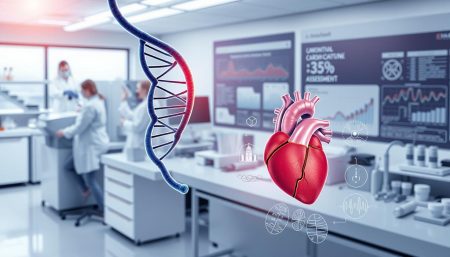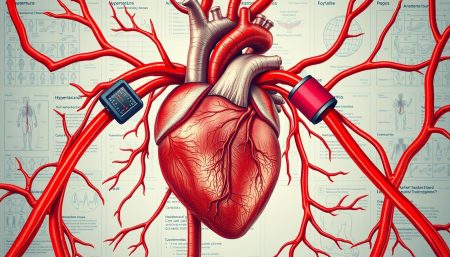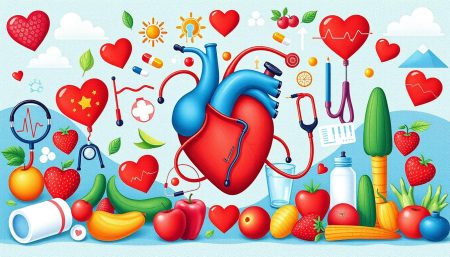Your heart whispers before it shouts. Recognizing the signs of cardiovascular disease early can be life-saving. From subtle changes in energy levels to more obvious chest discomfort, your body sends signals when your heart needs attention.
Heart disease warning signs vary widely. Some people experience classic symptoms like chest pain, while others notice unexplained fatigue or shortness of breath. Understanding these clues is key for timely medical intervention and better outcomes.
This guide explores the key indicators of heart trouble. It helps you identify possible cardiovascular issues before they become serious. By learning what are the signs of cardiovascular disease, you empower yourself to take control of your heart health.
What Are the Signs of Cardiovascular Disease
Spotting cardiovascular disease symptoms early can save lives. Heart disease warning signs vary, so it’s key to know the signs.
Common Initial Symptoms
Chest pain or discomfort is often the first sign of heart trouble. It can feel like pressure, squeezing, or fullness. Shortness of breath, even during light activities, is another common symptom.
Fatigue and weakness can also signal heart issues.
Gender-Specific Warning Signs
Men and women show cardiovascular disease symptoms differently. Women might feel nausea, vomiting, and back or jaw pain. Men usually report classic chest pain.
Both genders might experience dizziness, cold sweats, or light-headedness.
Silent Symptoms to Watch For
Some heart problems have no obvious signs. High blood pressure, a big risk factor, often has no symptoms. Regular check-ups can catch these silent issues early.
Swelling in the legs or ankles, persistent cough, and irregular heartbeats are subtle signs. Don’t ignore them.
“Listen to your body. If something feels off, don’t hesitate to seek medical advice. Early detection of heart disease can make all the difference.”
Knowing these warning signs helps you take charge of your heart health. Be alert to body changes and talk to your healthcare provider about any concerns.
Understanding Chest Pain and Discomfort
Chest pain is a common sign of heart disease and needs attention. Knowing the different types of chest pain can help spot heart issues early. Let’s look at the causes of chest pain and when to get medical help.
Types of Chest Pain
Chest pain can show up in many ways, each hinting at different problems:
- Pressure or squeezing sensation
- Sharp, stabbing pain
- Burning or heartburn-like discomfort
- Dull ache or tightness
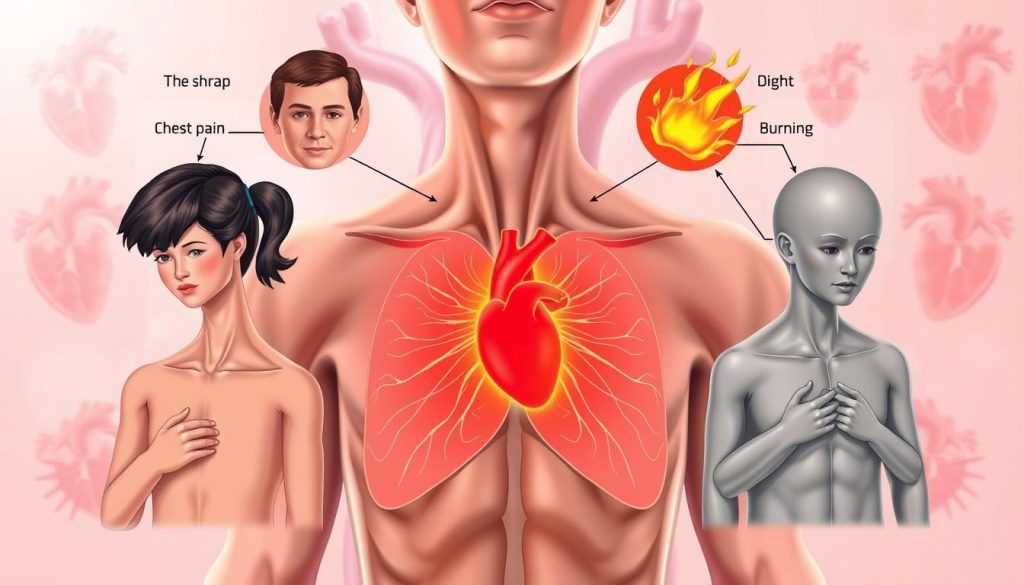
When Chest Pain Signals an Emergency
Some chest pain symptoms mean you need to get help right away. Look for:
- Sudden, severe chest pain
- Pain spreading to arms, jaw, or back
- Shortness of breath or difficulty breathing
- Nausea or cold sweats
These signs might mean a heart attack or serious heart problems. Spotting symptoms early is key for quick treatment and better results.
Differentiating Cardiac vs. Non-Cardiac Pain
Not all chest pain is from the heart. Here’s a guide to tell the difference:
| Cardiac Pain | Non-Cardiac Pain |
|---|---|
| Pressure or squeezing sensation | Sharp, localized pain |
| Radiates to arms, jaw, or back | Stays in one spot |
| Worsens with physical activity | Changes with body position or breathing |
| Lasts more than a few minutes | Brief, fleeting pain |
Remember, chest pain can have many causes. If unsure, always talk to a doctor to check for heart problems.
Breathing Difficulties and Heart Health
Shortness of breath is a common sign of heart disease. Many people don’t know that trouble breathing can mean heart issues. When your heart can’t pump blood well, it also affects your lungs.
Feeling out of breath after climbing stairs or walking short distances might mean more than just being unfit. If you find yourself out of breath during activities that used to be easy, it’s time to pay attention.
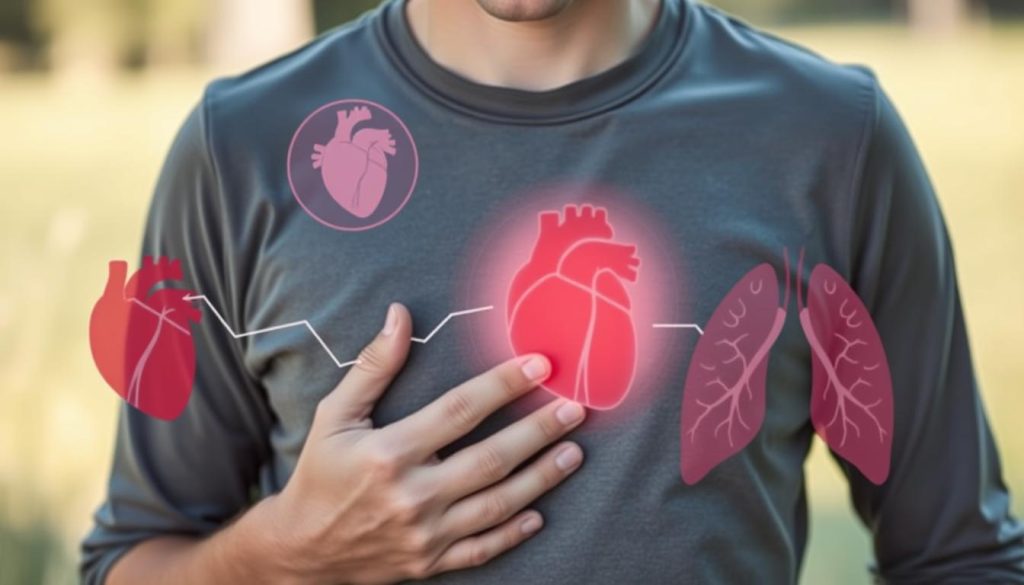
- Orthopnea – trouble breathing when lying flat
- Paroxysmal nocturnal dyspnea – waking up gasping for air
- Dyspnea on exertion – breathlessness with light activity
These symptoms happen because fluid builds up in the lungs when the heart can’t pump right. If you keep having trouble breathing, even with light activity, don’t ignore it.
| Symptom | Possible Cardiac Cause |
|---|---|
| Shortness of breath with activity | Heart failure |
| Waking up short of breath | Fluid buildup in lungs |
| Breathing trouble when lying flat | Left-sided heart failure |
Not all breathing problems come from heart issues, but unexplained shortness of breath needs a doctor’s check. Catching heart disease early can help treat it better and improve your health.
Irregular Heartbeat Patterns and Palpitations
An irregular heartbeat can be a sign of heart disease. Many people feel heart palpitations sometimes. But if they happen often or are very bad, it might mean something serious is going on. It’s important to know the signs and when to get help for your heart.
Common Arrhythmia Symptoms
Arrhythmias can make your chest feel funny. Some people say it feels like their heart is fluttering. Others say it feels like it’s racing or pounding. These feelings can be scary and might make you feel dizzy or out of breath.
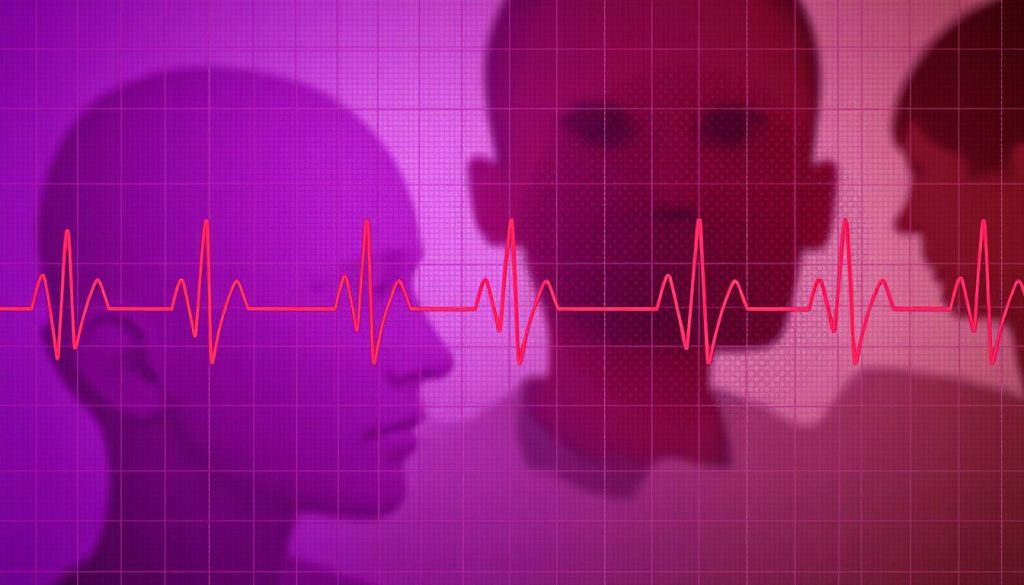
When Heart Rhythm Changes Are Dangerous
Not every irregular heartbeat is a big deal. But some signs need you to get help right away. If you have chest pain, pass out, or can’t breathe well and your heartbeat is off, call for emergency help. These could be signs of a serious heart rhythm problem.
Monitoring Your Heart Rate
Watching your heart rate can help spot problems early. Many smartwatches and fitness trackers can track your heart rate. Checking it often can give your doctor useful info.
| Heart Rate Category | Beats per Minute | When to Consult a Doctor |
|---|---|---|
| Normal Resting Heart Rate | 60-100 | If consistently above or below this range |
| Bradycardia (Slow Heart Rate) | Below 60 | If experiencing dizziness or fatigue |
| Tachycardia (Fast Heart Rate) | Above 100 | If accompanied by chest pain or shortness of breath |
By knowing about irregular heartbeats and watching your heart rate, you can help keep your heart healthy. If you have any worries or symptoms that don’t go away, talk to a doctor.
Fatigue and Unexplained Weakness
Feeling tired is normal, but constant fatigue is a warning sign for heart disease. When your heart can’t pump blood well, you feel extremely tired. This fatigue is more than just being tired and can really affect your life.
People with heart issues often feel:
- Overwhelming tiredness even after a full night’s sleep
- Difficulty performing routine tasks
- Unexplained weakness in limbs
- Decreased stamina during physical activities
If you’re always tired without a reason, it’s time to see a doctor. It’s important to check if your fatigue is related to your heart. You can read more about it here.
I never thought my constant tiredness could be related to my heart. It wasn’t until my doctor explained the connection that I realized how important it was to address my fatigue.
While fatigue can mean many things, it’s a big warning sign for heart disease when combined with other symptoms. Don’t ignore long-lasting weakness as just being stressed or overworked. Your body might be trying to tell you something about your heart health.
Swelling and Fluid Retention Signs
Swollen legs often mean there’s a problem with your heart. When your heart can’t pump blood well, fluid builds up. This causes swelling, or edema. Knowing these signs can help you catch problems early.

Identifying Edema in Different Body Parts
Edema isn’t just in your legs. It can show up in your ankles, feet, hands, or even face. Check for puffiness. If a dent stays when you press, it’s likely edema.
Causes of Cardiovascular Swelling
Heart failure is a big reason for swelling. If your heart can’t pump blood right, fluid stays in your body. High blood pressure and blood clots also cause swelling. These are all signs of heart disease.
| Body Part | Possible Cardiovascular Cause |
|---|---|
| Legs | Heart failure, venous insufficiency |
| Ankles | High blood pressure, heart valve issues |
| Hands | Right-sided heart failure |
| Face | Severe heart failure |
When to Seek Medical Attention
If swelling in your legs gets worse fast, get help right away. This is very important if you also have trouble breathing or chest pain. Quick action can stop serious heart problems.
High Blood Pressure Warning Signs
High blood pressure is often called a “silent killer” because it doesn’t show symptoms early. It’s a big risk for heart disease, but many don’t know they have it. Spotting warning signs early is key to catching it and managing it.
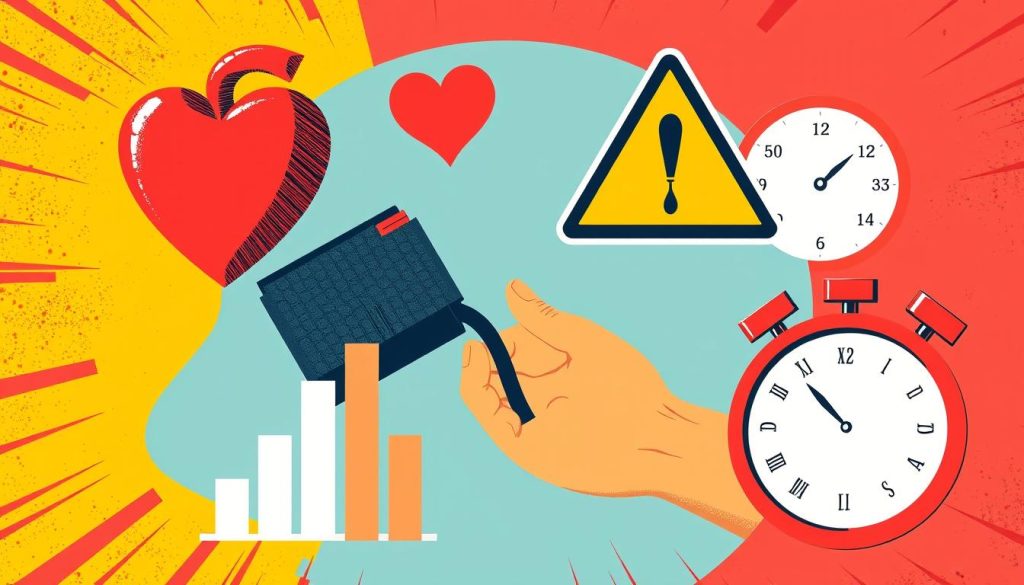
Even though high blood pressure usually doesn’t show symptoms, some people might feel:
- Headaches
- Shortness of breath
- Nosebleeds
- Dizziness
- Chest pain
These symptoms only show up when blood pressure gets very high. It’s vital to get regular check-ups to keep an eye on your blood pressure and stay informed about your health.
Knowing your risk factors helps you take steps to control your blood pressure. Here are common risk factors for heart disease linked to high blood pressure:
| Risk Factor | Impact on Blood Pressure | Prevention Strategy |
|---|---|---|
| Age | Increases with age | Regular check-ups |
| Family history | Higher risk if relatives have it | Early screening |
| Obesity | Puts extra strain on heart | Maintain healthy weight |
| Sedentary lifestyle | Weakens heart muscle | Regular exercise |
| High-sodium diet | Increases blood volume | Reduce salt intake |
By knowing these risk factors and checking your blood pressure often, you can protect your heart. This helps lower your risk of heart disease.
Exercise Intolerance and Heart Disease
Feeling tired or struggling with physical activity could mean heart disease. It’s a subtle sign that your body is trying to tell you something. Knowing these signs can help you act fast.
Physical Activity Limitations
Being out of breath or extremely tired during simple tasks is a warning. This could be climbing stairs, walking short distances, or doing daily chores. Notice if you’re not as strong as you used to be.
Recovery Time Concerns
Need more time to catch your breath after working out? It might be a sign of heart trouble. This is often missed but is a key sign of heart strain.
Safe Exercise Guidelines
For those worried about heart disease, safe exercise is key. Start slow and build up. Stop if you feel chest pain, dizzy, or really out of breath. Always check with your doctor before starting a new workout plan, even if you have heart issues.
| Exercise Type | Intensity | Duration | Frequency |
|---|---|---|---|
| Walking | Low to moderate | 15-30 minutes | 5 days/week |
| Swimming | Low impact | 20-30 minutes | 3-4 days/week |
| Cycling | Moderate | 20-30 minutes | 3-4 days/week |
| Yoga | Low | 30-45 minutes | 2-3 days/week |
Exercise is good for your heart, but listen to your body. If you keep feeling tired during exercise, see a doctor. They can check for serious heart problems.
Digestive Symptoms Related to Heart Problems
Digestive issues don’t usually come to mind when we think of heart problems. Yet, they can be connected. It’s key to understand this link to spot heart disease early.
Nausea and vomiting might signal heart trouble. These symptoms are common during a heart attack, more so in women. Feeling full after small meals or having unexplained indigestion could also hint at heart issues.
Abdominal pain is another symptom to watch for. It’s often thought of as a stomach problem, but it can also be a sign of heart issues. This pain might feel like a dull ache or sharp discomfort in the upper abdomen.
Loss of appetite is a less-known symptom of heart disease. If you’re consistently not interested in food without a clear reason, talk to your doctor.
“The heart and digestive system are more closely linked than many realize. Paying attention to unusual digestive symptoms could potentially save lives.”
These symptoms don’t always mean heart problems. But if they last or come with other heart signs, see a doctor. Early detection and treatment are key to managing heart health.
Sleep Disorders and Cardiovascular Health
Sleep disorders can harm your heart health, making them key risk factors for heart disease. It’s important to understand how sleep affects heart disease symptoms. This knowledge helps keep you healthy overall.
Sleep Apnea Connection
Sleep apnea is when breathing stops and starts during sleep, linked to heart issues. It causes sudden drops in blood oxygen, stressing the heart.
Nighttime Warning Signs
Knowing nighttime warning signs can help spot heart problems:
- Gasping or choking during sleep
- Excessive snoring
- Night sweats
- Shortness of breath while lying down
Improving Sleep Quality
Boosting sleep quality can lessen heart disease symptoms and improve heart health. Here are some tips:
| Strategy | Benefit |
|---|---|
| Stick to a sleep schedule | Regulates body’s internal clock |
| Create a relaxing bedtime routine | Reduces stress and anxiety |
| Limit screen time before bed | Improves melatonin production |
| Exercise regularly | Promotes better sleep quality |
By tackling sleep disorders and bettering sleep quality, you can lower heart disease risk. This helps manage heart disease symptoms better.
Women-Specific Cardiovascular Symptoms
It’s important for women to know the signs of heart disease early. Women often have different symptoms than men, making it harder to spot. Instead of chest pain, women might feel very tired, have trouble breathing, or feel sick to their stomach.
Women might also feel pain in their jaw, upper back, or have flu-like symptoms. These can happen weeks or months before a heart attack. Other signs include sweating a lot, feeling dizzy, or having trouble sleeping.
Women’s heart risks go up during menopause. Knowing the signs of heart disease at different ages is key. Regular health checks, a healthy lifestyle, and knowing your family history help manage heart health. By recognizing these symptoms, women can take steps to keep their hearts healthy.
FAQ
Q: What are the most common signs of cardiovascular disease?
A: Common signs include chest pain or discomfort, shortness of breath, and irregular heartbeat. Fatigue and swelling in the legs, ankles, or feet are also signs. Some people, like women, might not show typical symptoms.
Q: How does chest pain associated with heart problems feel?
A: Chest pain from heart issues feels like pressure or squeezing. It can be in the center of the chest and last a while. Sometimes, it spreads to the arms, neck, jaw, or back.
But not all chest pain is from the heart. And not all heart problems cause chest pain.
Q: Are cardiovascular disease symptoms different for women?
A: Yes, women often have different symptoms. They might feel shortness of breath, nausea, or back pain. They could also feel extremely tired, dizzy, or have cold sweats without chest pain.
Q: When should I seek immediate medical attention for possible heart symptoms?
A: Call for emergency care if you have severe chest pain with shortness of breath, fainting, or nausea. Also, seek help if you have arm, jaw, or severe sweating pain with chest discomfort.
Q: Can digestive symptoms be related to heart problems?
A: Yes, some people, like women, might have digestive symptoms related to heart issues. These include nausea, vomiting, or abdominal pain. These symptoms alone don’t mean heart problems, but with other symptoms, they’re important to note.
Q: How does high blood pressure relate to cardiovascular disease?
A: High blood pressure is a big risk for heart disease. It often has no symptoms, making it a “silent killer.” It’s key to check your blood pressure regularly, as uncontrolled high blood pressure can cause heart attacks and strokes.
Q: What is exercise intolerance, and how is it related to heart health?
A: Exercise intolerance means you can’t do physical activities you should be able to. It can show as shortness of breath, extreme fatigue, or chest discomfort during or after exercise. These signs might mean heart issues and need a doctor’s check.
Q: How can sleep disorders affect cardiovascular health?
A: Sleep disorders, like sleep apnea, can harm heart health. They can cause high blood pressure, irregular heartbeat, and stress on the heart. Symptoms like loud snoring or gasping for air during sleep could mean sleep apnea and need a doctor’s talk.












